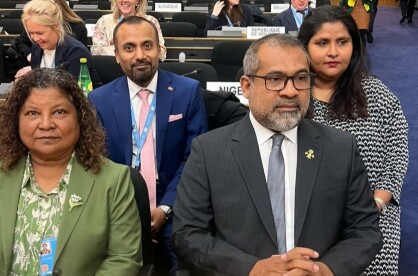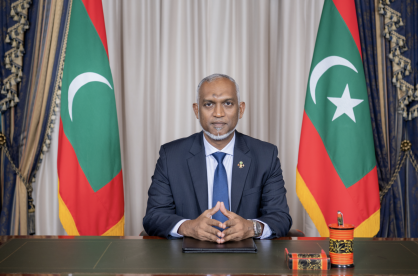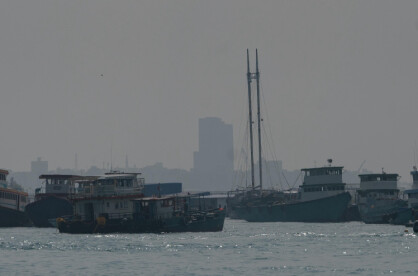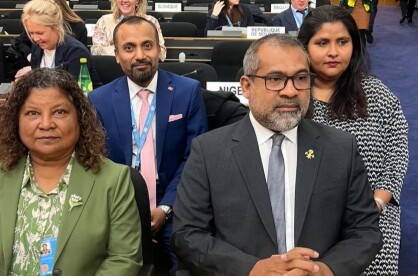Did we learn from COVID-19?
The pandemic may have compounded our tendency to go with the flow as usual – which, for years, has not been the right path to be on.

The pandemic may have compounded our tendency to go with the flow as usual – which, for years, has not been the right path to be on.

Right before the COVID-19 pandemic hit the world, and the Maldives, the nation registered a nominal GDP of USD5.6 billion by the end of 2019, and attracted a record 1.7 million tourists during the year. GDP per capita reached USD10,541 – the highest in the South Asia region.
However, being a country that is heavily reliant on the tourism sector, with the forced border closures from March until 15 July 2020, the country attracted a mere 555,000 tourists during the year. The economy shrank by 29 percent in 2020, with per capita income reduced to USD 6,741.
In many parts of the world, experts started discussions on the lessons to be learnt from the worst pandemic to hit the entire world in the past century. There was talk about ‘building back better,' making the pandemic an opportunity to bring about the required reforms, and to be better prepared for similar situations in the future.
The Maldives is no different. With compounded macroeconomic problems, including the great divide between the rich and the poor, the Maldives had a high deficit to GDP, high debt to GDP, a current account exceeding 20 percent of GDP, disparities between Malé and the atolls, weak institutions, low reserves, and was highly susceptible to environmental vulnerabilities.
Even though the country has a fiscal responsibility law, over the last 10 to 12 years debt has been accumulating over and over. It has been debt on debt on debt. No finance minister, president or a government in the past has acted responsibly enough. In addition, the new administration has paid huge amounts in compensation - amounts that are over 50 to 60 percent of the total tax revenue in 2019. More than half of tax revenue being paid in compensation alone is a staggering concept.
Evidence across the world suggests that income inequality has a negative effect on economic growth, and makes development less sustainable over time. Research by the International Monetary Fund (IMF) suggests that if the income share of the poor is lifted by 1 percent, GDP growth in a country increases by as much as 0.38 percent. On the other hand, if the income share of the rich is lifted by 1 percent, then GDP growth actually decreases by 0.08 percent.
The main drivers of income inequality in the Maldives have been inequalities in access to education, health care and financial services.
In order to achieve sustainable growth and make development more inclusive, the number one priority of policymakers must be to bring in macroeconomic stability. If policy makers do not apply good economics by not having fiscal discipline and allowing public debt to balloon, then the country is destined to see slower growth, rising inequality, and greater economic and financial instability.
Good governance and strengthening state institutions are also important priorities to bring about economic and social equality.
Another game changer will be prudent fiscal policy. The government’s tax policies and the spending decisions must not adversely affect on incentives to work and save.
Former Minister of Finance, Mohamed Jaleel said in a recent webinar discussion that “what I have to say first, second and last, is do not lose this opportunity again. This is a great opportunity. Oftentimes when you are in the valley you get the best time to do things. Do not lose this opportunity and take those extraordinary measures, bold measures, work together and try to learn from the lessons of experience."
In the same discussion former Governor of the MMA, Ahmed Naseer* remarked, “Let this pandemic or let this crisis be an opportunity for us to think back and take our economy back from the ventilator, and then build it better by bringing about the required structural reforms in our economy, in public finance management, in governance, financial corruption, and all other factors that we need to reform in the economy, in order for us to not continue business as usual. If we decide not to, and if we decide to ignore all these factors as soon as we get our resorts filled with guests and tourists, then we would have not learnt at all and we would be in this situation very quickly again. So, let us hope that we would be able to all work together and bring these changes.”
All the reforms and policies discussed here require leadership, courage and collaboration of all government departments and the private sector. For this reason, this publication believes and calls on politicians, policymakers, and key stakeholders in the private sector, to translate good intentions into bold and sustainable actions. The present crisis could be a once-in-a-generation opportunity to bring about the much needed reforms.
The key is to work towards achieving greater prosperity, a shared prosperity – for all Maldivians.
Former Governor of the MMA Ahmed Naseer is Chief Economist at The Maldives Financial Review.



